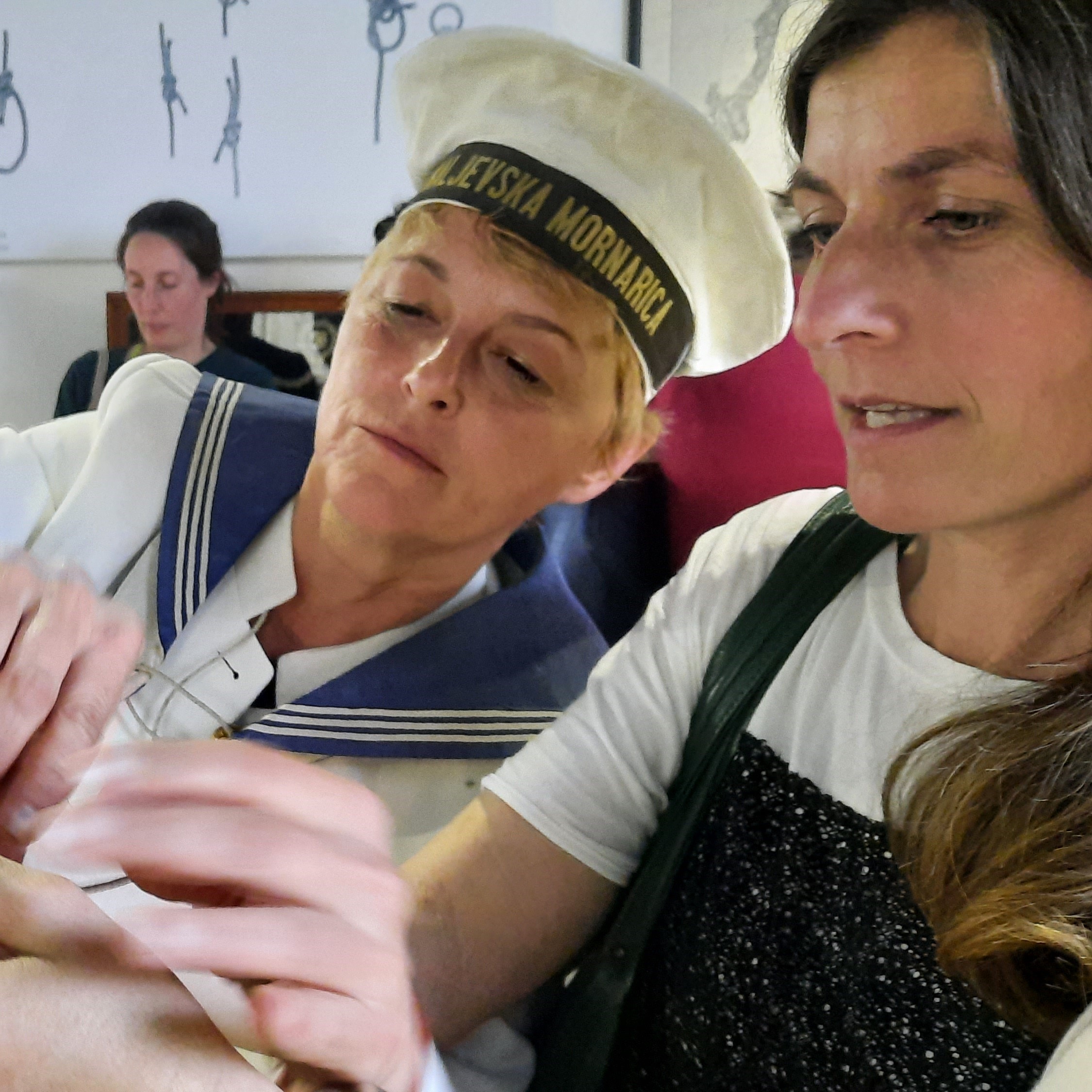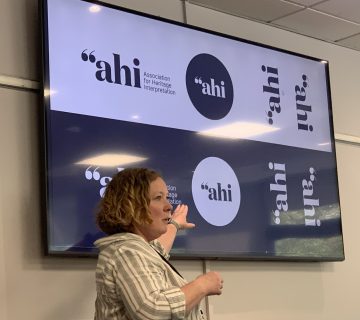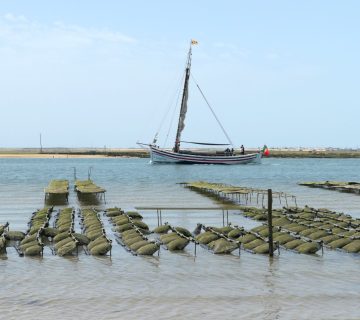Local interpreters and members of the local heritage community can impact the development and the preservation of cultural and natural heritage.
During the last two weekends of May, we held an IE Certified Interpretive Guide (CIG) course on the island of Krk in Croatia. The organising partners were seven local tourist offices of the island of Krk, along with the regional tourist office. A fantastic group of 14 participants joined, all local people actively working as local tourist guides on the island.
As our intense group and individual activities showed, the local interpreters are also part of the heritage community that they interpret. It didn’t take long for them to show their full creative potential. From the beginning of the course, which always starts with lots of questions and at the end of the first day with the “So what (now)?” question we moved from one activity to the next opening their minds and creative expressions.
Group work between tourist guides – who are very individualistic creatures, working and doing all by themselves – showed us the power of cooperation. By the end of the second day, we all felt something special was happening. A turning point was passed as the participants delivered their first interpretive talks. The group work was organised in the Maritime Heritage Interpretation Centre and in the medieval Frankopan Castle in Krk town. With each activity the participants went further, with each new assignment from the course programme.
They grasped the use of, and beautifully incorporated, diverse ‘stepping stones’ into their interpretation, involving the rest of the group (their ‘visitors’) in participation to help guide each other to reach deeper meanings in the heritage phenomena. The whole course involved participating – exploring – experimenting – active learning. Role-play of both parties gave us an on-the-spot experience of good interpretive practice: how to approach the ‘larger truth’ and the deeper meaning of the phenomena.
Another thing that was highlighted during the course was the support of the entire group towards those that were performing, reminding them of the traditional practices of our ancestors: the importance of support and of the community during everyday work in the house, in the field, within the family and throughout the centuries. Thanks to these practices, the heritage communities of the island of Krk – and the members of our group are just that – consider themselves lucky. They enjoy pretty well-preserved local environments (although there is of course lots of criticism here too), the preserved memories and stories of local people – important historical figures and those who are remembered by their descendants.
The interpretive talks on the last day were excellent: always on the first day when we introduce the group to so many new words, new tools and new approaches, this final task can seem so far away for them. But new methods were embraced as if it was something that had always been somewhere in the air, but with new tools finally within their reach. The principles of good interpretation are like that – brought into awareness we realise they were just waiting for us to use them.
Samia Zitouni is an IE Certified Interpretive Trainer. She is a passionate heritage interpreter and explorer from Zagreb, Croatia. Samia is a member of IE’s Cultural Heritage Team and is IE’s Webinar Officer for our monthly webinars and for IE Croatia, delivering webinars in Croatian language. Samia can be contacted at: samiaztn@gmail.com.
To cite this article: Zitouni, Samia (2021) ‘Interpreting heritage with members of the local community’ in Interpret Europe Newsletter 2-2021, 22.
Available online: https://interpret-europe.net/wp-content/uploads/2021/06/Newsletter-Summer-2021.pdf




